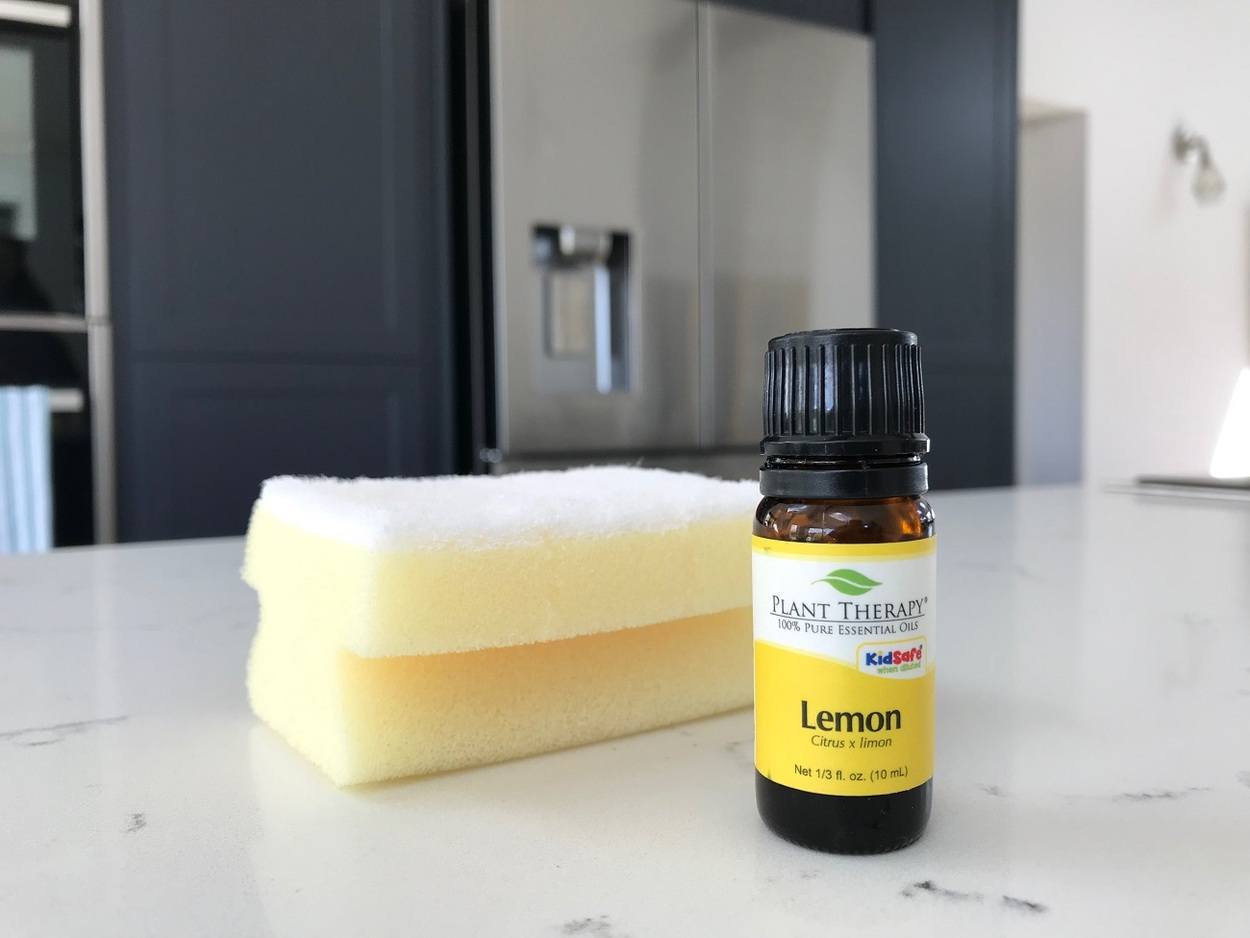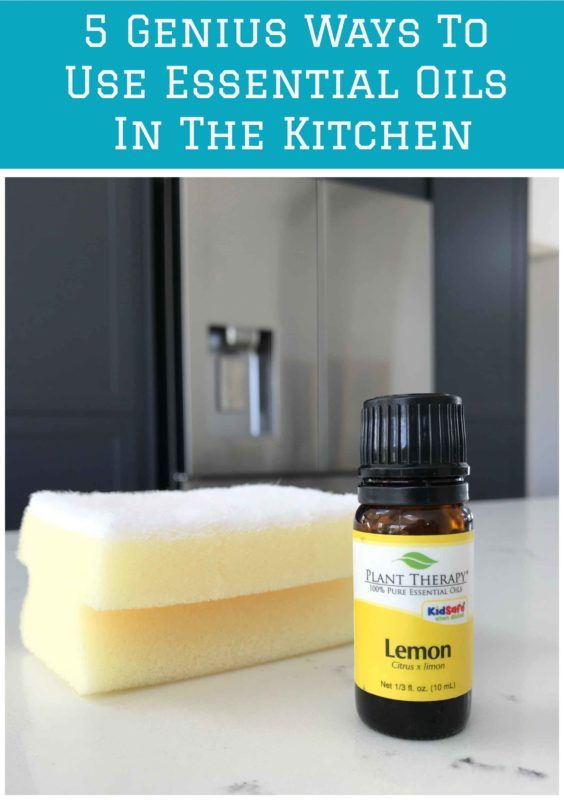
Essential oils are handy to have around when you are working in the kitchen. They can be used from cleaning kitchen worktops, to providing the “right” ambience for your latest social gathering! However, it is essential that you understand how to use essential oils safely in this way to avoid unwanted accidents.
This article is a quick introduction on how to use essential oils in the kitchen. For a comprehensive look at the therapeutic properties of the individual essential oils mentioned, consult the appropriate essential oil profile.
1. Using Essential Oils to Clean in the Kitchen
Kitchens are in a constant flux of cleaning. Worktops are used several times a day to prepare food, so it’s no surprise that they are open to dirt and bacteria. Many essential oils have anti-bacterial properties, including black pepper (Piper nigrum) essential oil.
In a study on the antibacterial activity of black pepper published in the Indian Journal of Natural Products and Resources, results showed that black pepper essential oil inhibited the growth of bacteria such as Staphylococcus aureus and Escherichia coli, among others.
Homemade Essential Oil Kitchen Surface Cleaner
Combine black pepper essential oil with lemon (Citrus x limon) and clove (Syzygium aromaticum) essential oils in a base of white vinegar for a powerful cleaning blend for kitchen work tops. Use a dilution rate of about 3% when cleaning with essential oils. Add the mixture to an amber glass spray bottle and spritz on kitchen surfaces. Wipe down with a damp cloth.
You’ll find the essential oils required to make this work top cleaning spray from this page on Plant Therapy’s official Amazon store.
Be aware than that both black pepper and clove essential oils can cause skin irritation. Lemon essential oil can also cause possible skin sensitivity.
2. Using Essential Oils to Get Rid of Bad Kitchen Smells
Although the kitchen can be full of tantalizing aromas of food cooking and baking, there are also those bad smells that permeate from the garbage bag or garbage disposal. There may even be lingering smells in the kitchen from yesterday’s cooking that you want to get rid of.
You can deodorize the kitchen by using essential oils in an aromatherapy diffuser. A study on Antifungal activity of essential oils against fungi isolated from air conducted by Tiffany Schroder, Sharyn Gaskin, Kirstin Ross and Harriet Whiley found that clove essential oil was most effective against fungi (in those tested against) in relation to air quality, although eucalyptus (species not stated) and lavender essential oil showed some potential as well.
Combine clove, lavender and eucalyptus essential oils in a blend and add a few drops to an aromatherapy diffuser. (This diffuser is one of the most popular and best reviewed.) Diffuse for twenty minutes in the kitchen area. Make sure that all pets, babies, children, seniors, and those with serious medical conditions are not in the area. In addition, ventilate the area well.
3. Create Seasonal and Home Ambience in the Kitchen with Essential Oils
Essential oils can be used to invoke a particular mood, memory, or ambience and, even if you aren’t cooking or baking in the kitchen, you might want to simulate some of the aromas associated with a homely kitchen, particularly if you are hosting a seasonal party.
Essential oils which lend themselves to positive “kitchen” aromas include vanilla (Vanilla planifolia), benzoin (Styrax benzoin), and spice essential oils such as cinnamon (Cinnamomum zeylanicum) and nutmeg (Myristica fragrans). Benzoin and cacao absolute (Theobroma cacao) have a chocolate-like aroma. You may also want to try coffee bean (Coffea arabica) oil.
All of these essential oils can be diffused in an aromatherapy diffuser, although some of the thicker absolutes might be more difficult to add unless you combine them in a blend before adding to the diffuser. In addition, check individual cautions for using specific essential oils and follow the advice for diffusing as in the section above.
If you’d like to evoke an Autumnal vibe then consider these Fall essential oils, while if you are hoping to create a festive vibe these Christmas essential oil blends will do the trick.
4. Essential Oils for Treating Burns in the Kitchen
Burns are a common accident in the kitchen. Minor burns from pans and the stove top can be treated with essential oils. For more serious burns, seek the advice of a medical professional immediately.
Lavender (Lavandula angustifolia) essential oil is famed for its use in the treatment of a burn by aromatherapy pioneer Rene-Maurice Gattefosse. It has been studied since then for its success in treating burns in studies such as this one on the Use of Essential Oils Following Traumatic Burn Injury: A Case Study by Jopke K., Sanders H., and White-Traut R. Although it was found that further study was needed, preliminary results showed that use of essential oils in traumatic burn injuries showed potential.
Lavender essential oil is a great essential oil to keep on hand for first-aid care in the kitchen. Combine it with a simple white lotion base for burns to promote a “cooling” effect. Use at a 2% dilution for normal adult use. Half this amount for young children, seniors, and in pregnancy. Use on its own (diluted in the white lotion base) or combine with an essential oil such as tea tree (Melaleuca alternifolia) or helichrysum (Helichrysum angustifolia). Apply a small amount of the lotion to the burn and wrap. Consult a medical professional as needed.
5. Essential Oils for Cleaning and Deodorizing Kitchen Floors
Kitchen floors get dirty, not just from the usual traffic but from pets being sick, children dropping food, and all manner of untold bacterial potential! Depending on the floor surface of your kitchen, you can use a simple combination of baking soda and a suitable essential oil to freshen up and deodorize your kitchen floor.
Combine baking soda with lavender (Lavandula angustifolia) essential oil. Sprinkle a small amount of the blend onto your carpet or carpet tiles and vacuum. If you have a bare floor such as linoleum, combine the blend with water and mop down the floor. Be careful of using essential oils on wood surfaces.
Cautions for Using Essential Oils in the Kitchen
Always check the cautions for using individual essential oils, the safe dilution rate to use them, and how to mix them safely with different bases. It’s also important to remember that babies, children, seniors, pregnant ladies, and those with chronic long-term illnesses and/or recent hospitalizations may need to use a lower dilution rate and/or not use the recommended blend at all.
Used safely and correctly, essential oils can be a great addition to cleaning your kitchen, be on hand for first-aid, or set the mood for your next party.
Pin This To Save For Later

